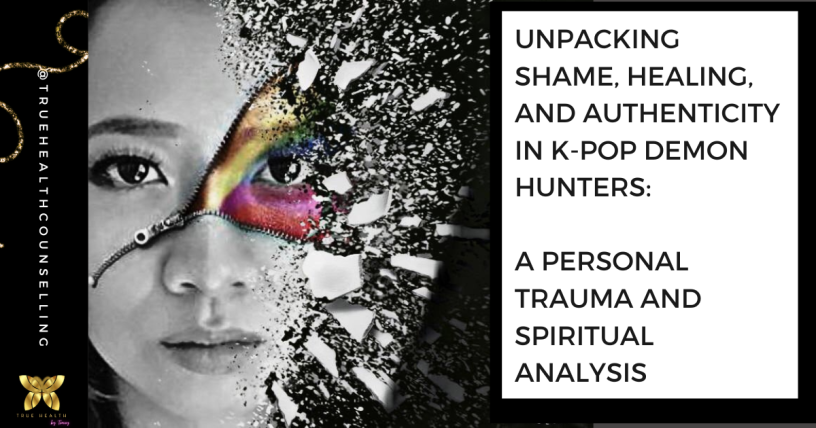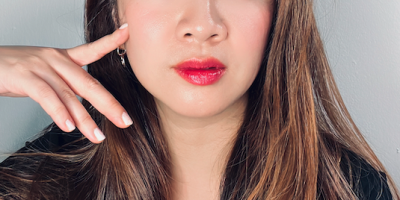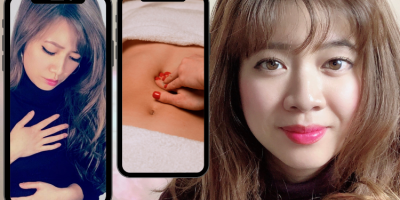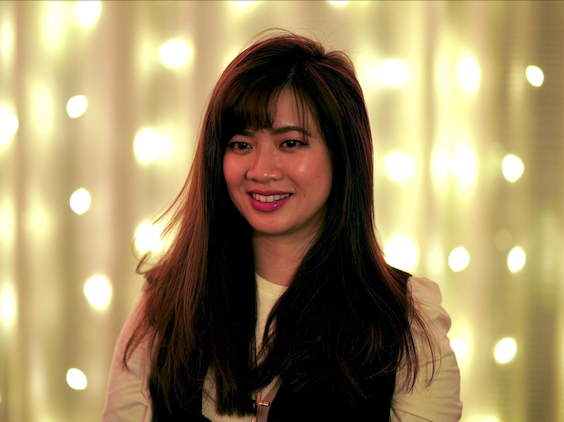Hey lovely souls, it’s me again, diving deep into something that’s been rattling around in my mind ever since I binge-watched K-Pop Demon Hunters on Netflix. If you haven’t seen it yet, drop everything and check it out—it’s this wild animated ride blending K-pop vibes with supernatural battles, but trust me, it’s way more than just catchy tunes and demon-slaying action. Directed by Maggie Kang and Chris Appelhans, this movie (streaming on Netflix) is a raw mirror to the struggles we all face in society: shame, division, and that messy path to true healing and authenticity. I mean, it gripped me from the first scene, and as someone who’s navigated my own trauma, I couldn’t help but see layers of biblical references, spiritual awakening, and even echoes of narcissistic family dynamics. Let’s break it down, shall we? This isn’t just a review; it’s my interpretation, laced with personal reflections on how we can apply these lessons to our lives.
The Stark Divide: Good vs. Evil, Light vs. Darkness
Right off the bat, K-Pop Demon Hunters throws us into this epic divide between good and evil, light and darkness. It’s like the movie’s holding up a mirror to how society splits everything into black-and-white boxes, but it goes deeper—it’s almost biblical. Think Genesis, where light separates from the void, or Adam’s fall, introducing sin and shame into the world (check out Bible Gateway for a quick refresher). That separation isn’t just cosmic; it’s personal. When you’ve dealt with trauma, it feels like parts of you get labelled “bad” or “wrong,” and you’re constantly fighting to hide them or fix them. In the film, this divide sets the stage for our heroes’ journeys, showing how we’ve been conditioned to see ourselves as fractured from the start.
This theme resonates so much because, as a society, we’re living in this mirage of denial. We chase after what we think is “positive”—that perfect life, the flawless K-pop idol image—but it’s often just a cover-up. The movie illustrates how this divide started long ago, maybe with original sin or societal norms that made authenticity “not okay.” We’re all hunting demons, but are we really? Or are we just reacting to our inner shadows? For more on these spiritual undertones, I loved this Jungian analysis on Medium—it dives into individuation, which totally aligns with my take.
Rumi’s Journey: From Hiding Shame to Embracing Wholeness
Enter Rumi, the main character who’s basically the heart of the story. She’s born with this split identity—her mom’s an angel, full of love and light, while her dad’s a demon, embodying darkness. Sound familiar? It’s super relatable, especially if you’ve grown up in a narcissistic family where one parent feels like this saintly figure and the other… well, angry and destructive. Rumi’s taught from a young age to be ashamed of her demonic side, to hide who she truly is. She thinks healing means building walls, creating this “Honmoon” force field to keep the demons out. But here’s the kicker: that’s not protection; it’s imprisonment.
In trauma terms, this is classic—putting up shields because you believe your “bad” parts will destroy you. Rumi spends the movie hiding her shame, singing songs about defeating demons, but it’s not about elimination. No, the real twist is accepting and integrating those demons within. It’s about understanding that the darkness isn’t something to eradicate; it’s part of what makes you whole. When Rumi finally says, “No lies, this is how I sound,” and sings with all her scars showing, it’s a breakthrough moment. That authenticity lights up everyone around her, creating this heart force field that connects souls. It’s powerful stuff—reminds me of how sharing our vulnerabilities can start a movement, waking up others trapped in their own shame cycles.
If you’re dealing with similar family dynamics, resources like Psychology Today’s articles on narcissistic abuse, along with the blogs I post here, can be eye-opening. They explain how toxic shame gets internalized, just like in Rumi’s arc.
Jinwoo’s Role: Toxic Shame, Betrayal, and Redemption
Then there’s Jinwoo, labelled a demon because of his past mistakes. He’s drowning in toxic shame, sitting with it like it’s his identity. Rumi believes in him, has hope, but she’s stuck in her own trap of toxic positivity—denying her shadows while trying to “save” him. She trusts him, and then boom, betrayal. But it’s not intentional; Jinwoo’s just listening to that voice of shame, believing he’s unworthy. This happens in real relationships all the time, right? We think the other person hurt us on purpose (and the pain is valid!), but often, they’re riddled with their own shame, acting out because nobody truly wants to cause harm—they’re just lost in it.
The movie nails this: freeing yourself from shame isn’t about toxic positivity (hiding scars) or wallowing in it (thinking you can’t escape). It’s integration. At the end, Rumi’s authenticity encourages her friends to sing too, facing their shadows. People might shame you for showing up real, but when you’re brave enough to share your scars and light, it reveals the beauty in “brokenness,”—which isn’t even real; it’s a veil. For a deeper dive into relationship breakdowns through a trauma lens, this Reddit thread on K-Pop Demon Hunters theories has some spot-on discussions.
Beyond the Screen: Idolatry, Reverence, and True Authenticity
One of the most profound layers is how shame creates idolatry. In the film, the “Golden Honmoon” is this idolized force field—influence, authority, the perfect image. It’s like K-pop idols promising to “save” fans, but nobody can be your saviour. That’s idolatry at its core: idolizing positivity, men, narcissism, or even people as gods. The songs hint at it—”give me your heart, I’ll take your soul”—but true security comes from secure attachments without losing connection to something greater, like God.
The Bible warns against idols (see Exodus 20 on Bible.com), and the movie echoes that. We can’t idolize anything except God, but not from a fanatic or powerless place. It’s about submission through reverence, humility, and deep respect for something so much greater than us. Worshipping from shame just twists God into another idol, enabling our wounds. The revelation? Authenticity in our integration of shame is the true “honmoon.” When we show up with our patterns, heal them openly, that’s what changes the world. No more chasing illusions; just wholeness.
Wrapping It Up: Why This Matters for Our Healing
K-Pop Demon Hunters isn’t just a Netflix hit—it’s packed with enriched knowledge on trauma, healing, and spiritual evolution. From battling toxic shame to returning to an integrated self, it’s a call to reflect and heal in our own lives. It’s fun to analyze, but more importantly, it shows how facing shadows and embracing authenticity can free us. If you’re into K-pop, cool songs or just deep stories, watch it on Netflix.
What’s your take? Have you seen echoes of your trauma in movies like this? If you’d like support to explore how to heal your shame and journey towards authenticity —let’s discuss and heal together – feel free to book a free consultation. Your authenticity might just be the demon hunter we all need.




